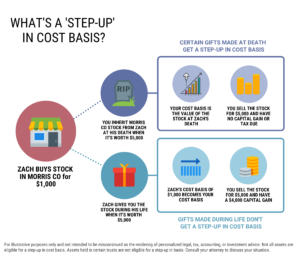What is probate and why should you try to avoid it? Whether an inheritance will go through probate or bypass the process will depend on the type of asset – not whether the decedent had a will. Having a will does not mean assets will avoid probate; a will is a legal record of the decedent’s wishes to aid the probate process.
If you have recently received an inheritance, you may have a number of questions about the process and the best use of the proceeds. However, if you inheritance goes through probate, it may take a lot longer than you expected.
The probate process
Probate is a legal process where certain assets in the decedent’s estate that were owned as an individual are distributed by the court. How does the court decide who gets what? If there was a will, then assets are typically distributed accordingly. If the decedent did not have a will, then the court decides.
4 Attorneys Share Real Life Estate Planning Nightmares
Why avoid probate?
Even if you do have a will, it is still advantageous to structure your affairs to avoid as much of the probate process as possible.

These are 4 main reasons to avoid probate:
-
- Probate can take a long time. Depending on how complex the estate is, it can take anywhere from a matter of months to years to complete the process. This is an emotional burden for the family and also a financial one, as there is often no liquidity from the estate during the process, yet regular expenses will continue, such as maintenance on the decedent’s home.
- The probate process can be very expensive. Some states have rules limiting the percent of the gross estate a probate attorney can collect in fees, which vary with the size of the estate. Again, the exact breakdown of fees will depend on whether there is a will in place, if it is contested by a friend or relative, whether a valuation is needed for interests held in a privately held business, and so on. In general, settling an estate through probate is costly. And if there’s no real value being added, why not try to avoid it?
- Avoid family feuds. If the executor of the estate is a friend or relative (instead of a third party) it can create discord among the surviving family and friends for a variety of reasons. There may be disagreements about the way the estate is managed or infighting about the way assets have been distributed. This kind of disharmony can occur regardless of who is appointed as executor of the estate, however, when that individual has a personal relationship with the affected parties and is perhaps also a family member, it can have a devastating impact on those relationships. Using an impartial third party can take family dynamics out of the equation.
- Probate is a public affair. When assets pass through probate, it becomes public information. Details about who received what and how much becomes part of the public record. This can create problems among family members and even predatory behavior from unrelated parties.
Does an inheritance go through probate?
Certain types of assets will not enter the probate process regardless of whether there was a will in place.
- Beneficiary designations. Assuming the decedent has made proper beneficiary designations, accounts like IRAs, 401(k)s, brokerage account, and life insurance policies will bypass probate.
- Trusts. Trusts will also bypass probate, which is a central reason to set up a trust. Whether the decedent established a revocable or living trust during their lifetime, or the estate plan details that certain assets will pass to newly created trusts upon death, these assets may not be subject to probate. A wide range of assets can go into trust. Common examples include real estate, art, cash, investment accounts, and so on.
- Titling. Assets owned jointly, often by marriage, may pass to the spouse, avoiding probate. States have different rules about ownership in this regard so it will ultimately depend on the state you live in and the physical location of the assets, if any.
Related:
Inheriting a Trust Fund: Distributions to Beneficiaries
If an inheritance does not fit these criteria, then it will likely pass through probate. Remember, having a will does not mean assets will avoid probate. Learn more about whether you need a trust if you have a will. To learn more about inheritance planning, please contact us.
The material in this article is for general information only. This article is not personalized investment, legal, accounting or tax advice. Consult a professional in your state to discuss your situation.









